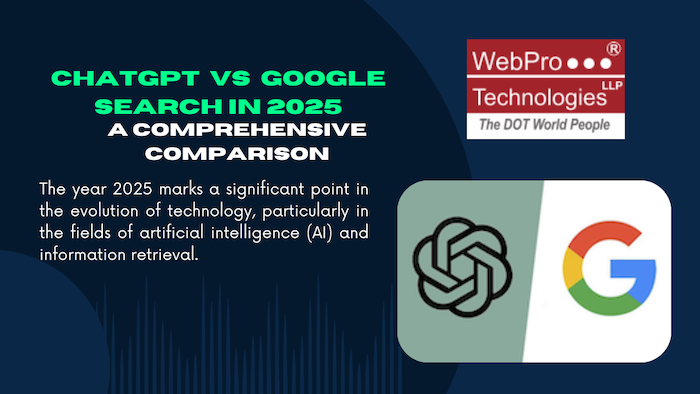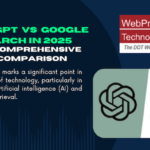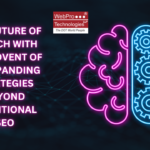The year 2025 marks a significant point in the evolution of technology, particularly in the fields of artificial intelligence (AI) and information retrieval. ChatGPT and Google Search, two titans in their respective domains, have become indispensable tools for millions of users worldwide. While both serve the purpose of providing information, they do so in fundamentally different ways. This blog delves deep into the strengths, weaknesses, and unique roles of ChatGPT and Google Search in 2025, highlighting how they cater to diverse user needs.
Understanding the Basics
Google Search: Google Search has been the go-to platform for finding information on the web for decades. By indexing billions of web pages and using sophisticated algorithms, it provides users with links, snippets, and resources ranked by relevance. It excels in breadth and precision, offering everything from academic papers to product reviews, news, and more.
ChatGPT: ChatGPT, on the other hand, is an AI-powered conversational agent designed to simulate human-like interaction. It generates responses based on large-scale language models trained on diverse datasets. Unlike traditional search engines, it focuses on delivering direct answers, explanations, or creative content without requiring users to sift through multiple links.
Key Differences
Nature of Interaction:
- Google Search operates as a query-based platform, where users input keywords and receive ranked lists of web pages.
- ChatGPT engages users in a conversational format, providing answers, suggestions, and explanations in a human-like tone.
Content Delivery:
- Google Search thrives on offering a wide array of sources, allowing users to cross-check and verify information.
- ChatGPT synthesizes information into a cohesive response, saving users the effort of navigating multiple links but with limited verifiability.
Real-Time Information:
- Google Search is adept at fetching real-time updates, such as live news, stock prices, and weather forecasts.
- ChatGPT, while capable of generating responses on a vast range of topics, relies on either periodic updates or integration with real-time data sources for dynamic information.
Strengths of Google Search
- Comprehensive Indexing: Google’s ability to crawl and index virtually the entire internet ensures users can find even the most obscure information.
- Reliability and Source Diversity: By displaying results from reputable sources, Google allows users to verify information through multiple perspectives.
- Real-Time Updates: Features like Google News, live sports scores, and event trackers keep users informed about ongoing developments.
- Customizability: Google Search provides tools like filters, advanced search options, and personalized recommendations tailored to individual preferences.
Strengths of ChatGPT
- Conversational Engagement: ChatGPT’s natural language processing (NLP) capabilities make it an excellent tool for engaging users in dialogue, answering follow-up questions, and refining responses based on context.
- Efficiency: By delivering concise and synthesized answers, ChatGPT reduces the need for users to browse through multiple web pages.
- Creativity and Personalization: ChatGPT excels in creative tasks such as writing poetry, generating ideas, or assisting with personal projects. Its ability to adapt to user preferences enhances the personalization of responses.
- Accessibility: The conversational format lowers barriers for users who may not know the precise keywords or technical terms to input in a traditional search engine.
Limitations of Each Platform
Google Search:
- Information Overload: The abundance of links can overwhelm users, especially when sifting through irrelevant or redundant results.
- Learning Curve: Users need to master search operators and techniques to extract the best results.
ChatGPT:
- Accuracy Concerns: While ChatGPT is adept at generating plausible responses, it may occasionally produce incorrect or outdated information.
- Lack of Source Transparency: Users cannot easily verify the origin of the information presented.
- Dependency on Training Data: Without real-time data integration, it may lag behind on current events or niche topics.
Use Cases in 2025
- Research and Learning:
- Google Search remains the preferred choice for academic and professional research, where source credibility and depth of information are paramount.
- ChatGPT serves as a quick reference tool, helping users understand concepts or brainstorm ideas.
- Decision Making:
- For tasks like comparing products, reading reviews, or planning travel, Google’s ability to aggregate user-generated content and reviews is unmatched.
- ChatGPT shines in providing personalized recommendations based on user inputs and preferences.
- Creative Projects:
- ChatGPT’s capability to generate creative content, such as stories, marketing copy, or design ideas, surpasses Google Search’s functionality.
- Real-Time Needs:
- Google’s real-time updates make it the go-to platform for live news, traffic updates, and event tracking.
- ChatGPT’s real-time integration, if present, could complement these features by providing summarized updates or explanations.
Synergy Between ChatGPT and Google Search
The debate between ChatGPT and Google Search isn’t about one replacing the other but rather how they can complement each other. By integrating conversational AI like ChatGPT with search engines, users could benefit from:
- Enhanced Search Experience: AI-driven summaries and clarifications alongside traditional search results can help users quickly grasp complex topics.
- Improved Personalization: Combining Google’s user data insights with ChatGPT’s conversational abilities can create more tailored experiences.
- Unified Platforms: Future developments may see a seamless blend of search and chat functionalities, where users can ask follow-up questions and dive deeper into specific results.
Ethical and Privacy Considerations
Both platforms raise important questions about data privacy and ethical use:
Google Search:
- Collects vast amounts of user data to enhance personalization, raising concerns about surveillance and data misuse.
ChatGPT:
- May inadvertently store sensitive information shared during conversations, necessitating robust privacy safeguards.
As users become more aware of these issues, transparency and ethical AI practices will play a critical role in determining the success of both platforms.
Future Prospects
In 2025, the lines between traditional search engines and AI-powered conversational tools are increasingly blurred. Here’s what the future might hold:
- Improved Integration: Hybrid models combining the strengths of both platforms could dominate, offering conversational search engines that provide direct answers alongside detailed source links.
- Advanced AI Models: With advancements in AI, ChatGPT-like models could achieve greater accuracy and context-awareness, rivaling traditional search engines in reliability.
- Specialized Applications: While Google may continue to excel in broad-based searches, ChatGPT could expand its role in niche domains such as education, healthcare, and creative industries.
- User-Centric Design: Both platforms are likely to invest heavily in enhancing user experience, focusing on speed, accuracy, and personalization.
Conclusion
ChatGPT and Google Search serve distinct yet overlapping purposes in 2025. While Google Search remains the cornerstone of web-based information retrieval, ChatGPT offers a conversational, efficient, and personalized alternative. The choice between the two depends on the user’s needs—whether it’s depth and verification or convenience and engagement. Ultimately, the future lies in leveraging the strengths of both to create a unified, intelligent, and user-friendly information ecosystem.
January 9, 2025






